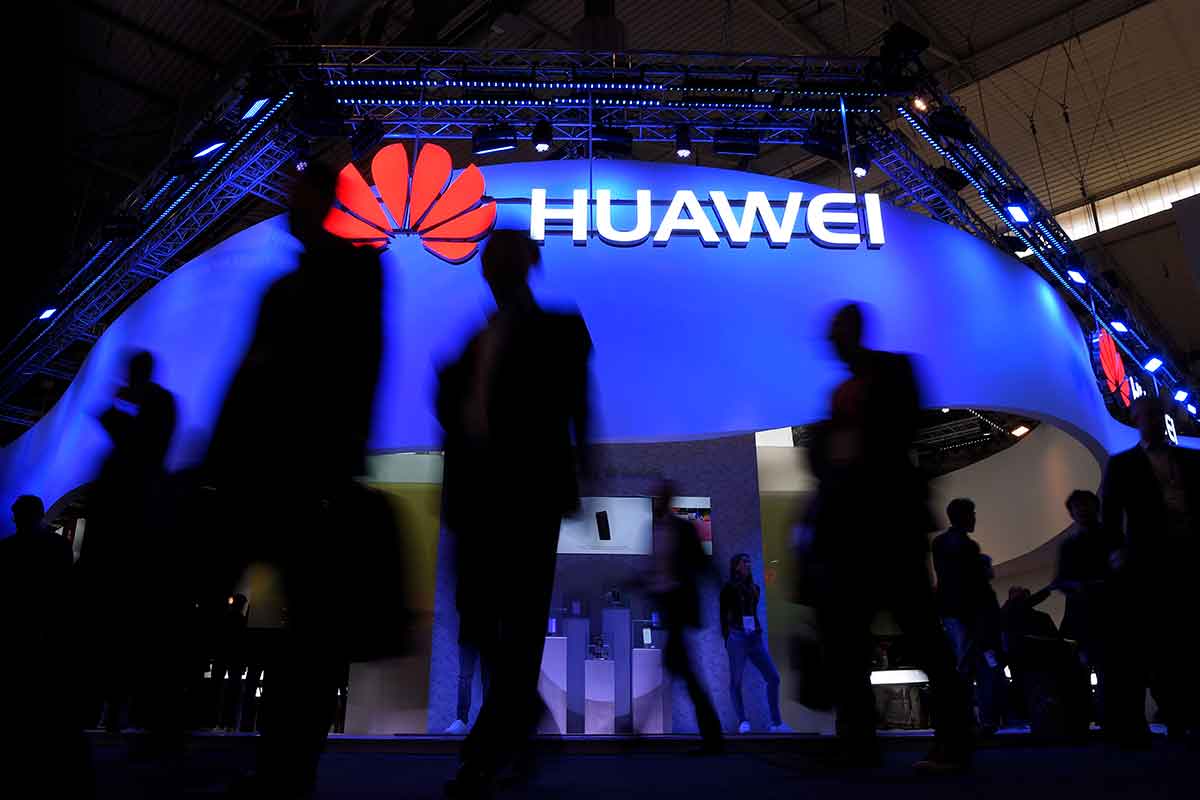The Trump administration arranged the arrest of Huawei Technologies Co.’s chief financial officer aware of potential blow-back in trade talks with Beijing but intent on showing resolve to crack down on Chinese companies accused of violating United States (US) law.
The arrest happened about the same time that President Donald Trump dined with Chinese President Xi Jinping in Buenos Aires to discuss the trade war between the countries.
White House National Security Adviser John Bolton, who sat at the table with Trump and Xi, knew in advance of the US request that Canadian authorities arrest Huawei CFO Wanzhou Meng, he told National Public Radio (NPR) Thursday. After Bolton’s interview, a White House official said that Trump was not aware of the arrest in advance, distancing the president from the provocative move.
But planning for the arrest was well underway as Trump prepared for a dinner that he said later resulted in “an incredible” deal with Xi - an agreement that may be in danger of unravelling after Chinese officials learned of Meng’s capture and pending extradition to the US.
The US-orchestrated detention of a leading figure in the Chinese technology industry - Meng is the daughter of Huawei founder Ren Zhengfei and a possible heir to his company - undercuts a key goal for Xi in the US talks: to show relations between the US and China returning to a more normal footing. The Chinese president has sought to prevent the economic conflict from spilling into other sensitive areas such as Taiwan or the disputed shipping lanes of the South China Sea.
Canadian authorities detained Meng as she was changing planes in Vancouver at the request of the US, which alleges that Huawei violated US sanctions on Iran. The same day, Trump and Xi were meeting for the first time in more than a year.
Coincidental arrest
The timing of the move against Meng was coincidental, driven by an itinerary that put her on Canadian soil on Saturday, said a person familiar with the matter. Even so, the White House didn’t delay or block the action.
Meng’s arrest is part of an ongoing investigation by US prosecutors into whether Huawei violated banking laws as it sought to evade sanctions against Iran by routing a series of transactions through HSBC Holdings Plc, according to a person briefed on the matter.
The US request for Meng’s extradition stems from a Trump administration campaign to increasingly hold Chinese nationals accountable for committing crimes, said a second person familiar with the matter, who asked not to be identified speaking about the sensitive issue.
Bolton, in addressing the arrest in the NPR interview, stressed that the conduct of Chinese companies - and especially technology companies - is a central issue in the trade dispute with the US. That includes theft of US intellectual property by Chinese actors and forced technology transfers from US companies to Chinese partners in joint ventures, he said.
“Huawei is one company we’ve been concerned about,” Bolton told NPR. “There are others as well. I think this is going to be a major subject of the negotiations that President Trump and President Xi Jinping agreed to in Buenos Aires.”
Other administration officials have also stressed the importance of punishing transgressions of trade rules and US law.
“We have to make sure there is enforcement on any so-called agreement. That is so important,” National Economic Council Director Larry Kudlow told reporters at the White House on Tuesday, a day before Meng’s arrest was announced. “China’s discussed these things with the US many times down through the years and the results have not been very good.”
Huawei scrutinised
Huawei, China’s largest maker of smartphones and telecommunications equipment, has been swept up in concerns that products made by Chinese technology companies are avenues for surveillance by the country’s intelligence agencies.
In April, the Federal Communications Commission adopted a proposal to prohibit the use of universal service funds to purchase equipment or services from any company identified as posing a national security risk to communications networks.
The agency is seeking comments through Friday on how that proposed rule fits with defense legislation signed in August that bars spending on “‘loans or grants” and specifically targets Huawei and ZTE Corp. In a filing with the agency, Huawei said the defense bill shouldn’t apply to disbursements of the communications subsidy.
So far, China has tempered its response to Meng’s detention. While the government promptly protested the arrest and demanded her release, the foreign ministry later said it was waiting for details on her capture. The ministry also said the US trade talks should continue as a 90-day pause on new tariffs between the US and China enters its second week. - Bloomberg
